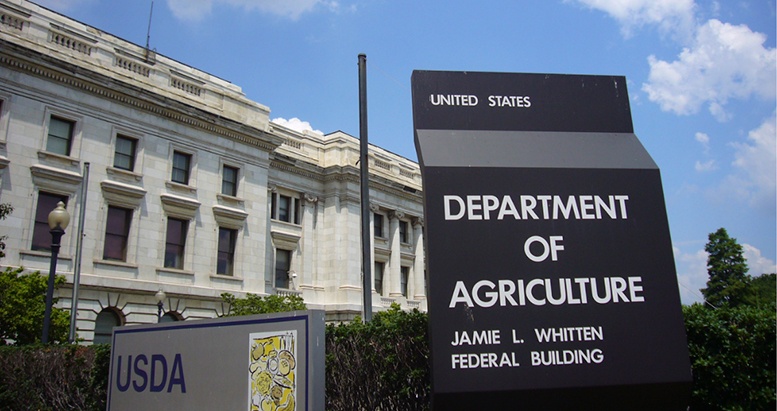The U.S. Department of Agriculture (USDA) has updated its federal hemp crop insurance to allow hemp crops to be insured when planted after soybeans in the 14 states where farmers operate directly under the federal farm agency.
The agency said the changes, which take effect in 2025, aim to provide more options when it comes to crop rotation.
Basic protections
The RMA provides crop insurance for hemp through its multi-peril crop insurance program, which protects against yield losses due to natural perils such as drought, pests, and disease.
The changes do not bring protections most critical to hemp farmers, such as THC levels exceeding the federal 0.3% limit. USDA’s Risk Management Agency (RMA) explicitly states that hemp crops failing THC compliance are not eligible for insurance payouts. Insurers are also not required to cover hemp infested with mold, yeast, or fungus
But not smoke damage
The revisions also clarify that smoke damage is not a covered cause of loss under the hemp insurance program. While fire and volcanic eruptions remain covered, losses due to smoke do not qualify for compensation, according to RMA.
“RMA is clarifying that smoke damage is not a covered cause of loss, as hemp coverage does not allow for quality adjustment,” the agency said. Research has shown that smoke damage can cause economic losses in the cannabis sector, though its specific effects on hemp are less studied.
The insurance update applies to farmers in Colorado, Illinois, Indiana, Maine, Michigan, Minnesota, Montana, Nevada, New York, North Dakota, Oregon, Pennsylvania, South Dakota, and Wisconsin.
Coverage grows
The hemp Actual Production History program, which offers multi-peril crop insurance in select production regions, has seen consistent growth since its introduction in 2020. In 2024, U.S. hemp operators insured $750,000 in covered liabilities on 2,600 acres nationwide, RMA said.
Farmers must adhere to strict guidelines, including crop rotation rules, and ensure compliance with provisions in the 2018 Farm Bill to be eligible for the insurance. Sales closing dates and coverage options vary by location, and policies are sold through private insurance agents in collaboration with the RMA.
Lab rule again delayed
In a related announcement, the USDA said enforcement of a rule requiring hemp growers to test crops exclusively at labs registered with the Drug Enforcement Administration has again been delayed. The delay, attributed to “inadequate” access to DEA-registered facilities, marks the third consecutive year of postponed enforcement for this requirement under the 2018 Farm Bill.

